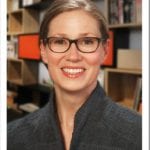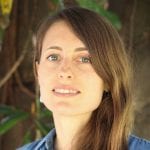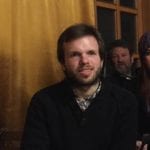We are thrilled to announce the ASLE grant recipients from our call in late 2017. Applicants applied to one of three categories: Community Grants, Translation Grants, and Subvention Grants.
Funding for ASLE grants come, in large part, from members and supporters like you. Donate today to support innovative research.
Update: All translation grant funds have now been awarded. Read about the two new grants awarded below.
Community Grants: Connect Humanities-Based Research with Place-Based Environmental Organizations
Africatown Youth Theater Production and Community Digital Archive
“This project argues that environmental humanities do not merely communicate scientific truths or offer perspective on facts; instead environmental humanities are ways of knowing the world.”
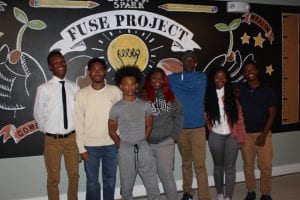
Success 4 the Future Participants
Africatown, Alabama was founded by the last group of enslaved Africans brought to the United States on the ship Clotilda in 1860. Like many free Black towns in the south, over the years Africatown has been surrounded by polluting facilities located on former plantation grounds creating environmental justice concerns in the community. Lawsuits and protests have arisen around the potential for contamination and the construction of a bitumen pipeline under important historic landmarks, but these have been largely ignored by the state.
The built and natural environments in Africatown code a history of structural racism and the steadfast resistance and accomplishments of community members. Both stories—the national disgrace of white supremacy and the courageous story that is Africatown—are visible in the landscape
The story embedded in landscape of Africatown is inseparable from the historical memory of the people who live there. Since the 19th century, the unique history of Africatown has been preserved by an oral history practice that includes knowledge of survival and resilience through forced relocation, enslavement, and segregation. The town only recently received recognition for its importance in international and national history in 2012 when it was listed in the national registry of historic places.
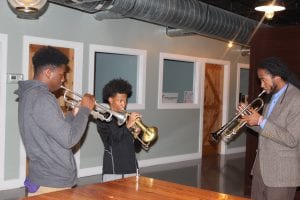
Success 4 the Future participants with Director Reggie Hill
The Africatown project serves to preserve the historical memory of the community (including the youth), and creates a space where collective knowledge can be shared in a way that informs contemporary questions and issue.
The ASLE community grant of $5,000 will fund both a theater production, and contributions to a community digital archive. The youth-authored and directed musical theater production will tell Africatown’s story and the youth’s own experiences. In order to gather material for the production, participants will interview community members about Africatown’s history. These interviews will then be added to a larger digital archive being created through a collaborative community effort including elders, youth, nonprofit leaders, pastors, and members of the Oberlin College community.
Collaborating organizations include: Clean Healthy Educated Safe & Sustainable (CHESS), an environmental justice organization; Success 4 the Future (S4tF), which mentors and provides opportunities for young men to engage in their communities; the Mobile County Training School Alumni Association (MCTS AA); and Oberlin College students and faculty.
Learn more about Africatown and this project in these recent news articles:
Zora Neale Hurston’s Barracoon: The Story of the Last “Black Cargo” (NY Public Library Podcast)
Students Help Africatown Fight for Environmental Justice (Oberlin Review)
Africatown Sues Over Factory Pollution (The Guardian)
Reporter May Have Discovered Clotilda, the Last American Slave Ship (NPR News)
Judges: Mark Long, Keene State College, Byron Caminero-Santangelo, University of Kansas, Mary Tischler, Ginosko, and Amy McIntyre, ASLE
Translation Grant: Expansion of Eco-Critical Conversations Across Cultures and Continents
The Latin American Eco-Cultural Reader
Jennifer L. French, Professor of Romance Languages at Williams College, and Gisela Heffes, Associate Professor of Spanish at Rice University, have received a $1,000 Translation Grant to support a portion of the cost of translations from Spanish to English for their co-edited book, The Latin American Eco-Cultural Reader. This volume will be published by Northwestern University Press.
French and Heffes are compiling and translating a collection of primary eco-critical texts from Latin America from Spanish to English. The collection reaches beyond the pre-dominantly Anglophone perceptions in this field and to help bridge the gap between Latin American eco-criticism and the larger field of Latin American literature and cultural studies. Additionally, by creating a translated compilation of primary eco-critical Latin American texts, the editors address the gap in availability of such a collection for use in university classrooms.
Beginning with the onset of colonial influence in Latin America this volume examines representations of the natural and non-human world, explores Creole landscapes, and looks at the relationship between nature and the nation-state. It includes Latin American experiences of neocolonial resource exportation, political and social changes in the Latin American city of 1880-1945 that resonate with today’s urban ecologies and environmental justice movements, and examines the relationship between development, debt and default, neoliberalism, globalism. The final chapter focuses on Latin American experiences of climate change and mass extinction. The volume will be published by Northwestern University Press.
A Hare With the Face of a Child
Monica Seger, Sallie Gertrude Smoot Spears Term Distinguished Associate Professor in the Dept. of Modern Languages & Literatures at The College of William & Mary, has received a $1,000 grant to translate Laura Conti’s Una lepre con la faccia di bambina (A Hare With the Face of a Child), originally published in Italian in 1978. This short novel chronicles the aftermath of the June 10, 1976 Seveso disaster in Northern Italy, based on Conti’s own observations. A chemical explosion at the ICMESA factory exposed the neighboring community to unprecedented levels of dioxin.
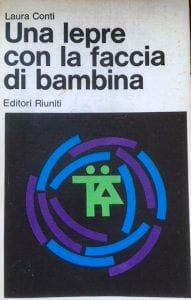 In its engagement with dynamic nonhuman matter, industrial crisis, and the power of narrative, Una lepre con la facia di bambina shares much with our current moment—not only in Environmental Humanities scholarship but society at large. At the same time, it sheds light on a pivotal period in Italian and global history: a moment of continued cold war anxieties, scientific and technological innovation, cries for sexual self determination, and newly unfolding understandings of transnational connections as exposed by environmental crisis.
In its engagement with dynamic nonhuman matter, industrial crisis, and the power of narrative, Una lepre con la facia di bambina shares much with our current moment—not only in Environmental Humanities scholarship but society at large. At the same time, it sheds light on a pivotal period in Italian and global history: a moment of continued cold war anxieties, scientific and technological innovation, cries for sexual self determination, and newly unfolding understandings of transnational connections as exposed by environmental crisis.
Laura Conti (1921-1993) has often been described as an Italian Rachel Carson. She wrote two books now fundamental to the Italian environmentalist canon, which unite ecology, lucid prose, and a concern for workers’ rights, Il dominio sulla materia (1973) and Che cos’è l’ecologia. Capitale, lavoro e ambiente (1977), and followed with many more important writings and articles, including Una lepre con la faccia di bambina.
Mennonia in Wonderland
Nat Paterson has been granted $1000 to translate Mennonia nel paese delle meraviglie [Mennonia in Wonderland] by Nello Amato from Italian into English. Mennonia is a five-act comedy, set during a mayoral election campaign in Cannalonga. It satirizes factionalism and disengagement in local affairs, but does not depict political parties or real individuals. In the author introduction, Amato describes the problems of litter and pollution that inspired him to write the work. He argues that people need to understand they are part of an ecosystem, with damage to the environment ultimately resulting in damage to human health, and calls for grassroots activism rather than party political factionalism.
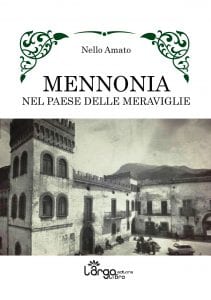 The publication and performance of Mennonia in English will make a new and important contribution to Eco Theater. It will be among the first plays written in an Italian dialect, and the first texts in any genre written in Cilentan, to be translated into English. The translation would raise awareness of the Cilento – especially its natural beauty, folk culture and environmental challenges
The publication and performance of Mennonia in English will make a new and important contribution to Eco Theater. It will be among the first plays written in an Italian dialect, and the first texts in any genre written in Cilentan, to be translated into English. The translation would raise awareness of the Cilento – especially its natural beauty, folk culture and environmental challenges
Nat Paterson has an M. A. in Literary Translation from the University of East Anglia, England. He has published in In Other Words, the journal of the UK Translators’ Association, and translated Echoes of a Lost Voice: Encounters with Primo Levi by Gabriella Poli and Giorgio Calcagno.
Translation Grant Judges: Heather Sullivan (chair), Trinity University, Serenella Lovino, University of Turin, Serpil Oppermann, Hacettepe University, Chia-ju Chang, Brooklyn College, Modhumita Roy, Tufts University, Lennie Amores, Albright College
Subvention Grants: Innovative Media Projects in Ecocriticism and Environmental Humanities
Mapping Poetry and Environment in Latin America
Currently under construction by Odile Cisneros an associate professor in the Deptartment of Modern Languages and Cultural Studies at the University of Alberta and two PhD students working in ecocrticism and in digital humanities projects, ecopoesia.com is a innovative trilingual multimedia platform and digital archive of contemporary Latin American poetry that maps the relationship between Latin American poetry and the environment.
As the first archive of contemporary Latin American poetry this project fills a gap in accessibility to knowledge, and translates this knowledge into Spanish, Portuguese, and English. Additionally, most of the texts are currently only available in print. The website will constructed to serve as an enduring digital archive of these works.
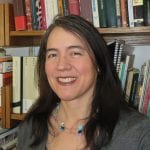
Odile Cisneros
Ecopoesia.com will provide alternative ways of viewing content beyond the traditional “author/works” format. It will allow users to search for poems focusing on particular issues/topics—pollution, animals and endangered species, human vs. more-than-human nature, indigenous views of nature, ecotourism, and so on. Multimedia for the site will include: videos of the poets reading their poetry, interviews, maps, and images of places, plants, animals, and other natural elements depicted in the poems. Through links to actual maps, images, and sounds, it will allow readers to link poetry to place, text to geography.
ASLE funds will help support web development for this project.
Indigeneity, Sovereignty and Decolonization: An Interdisciplinary Art Roundtable Gathering
A Digital Humanities Web Project
JuPong Lin, program director of the MFA in Interdisciplinary Arts (MFAIA) at Goddard College, seeks to extend the impact and reach of the single-day event at Goddard College in Port Townsend, Washington, in part, through a digital humanities web project.
Initiated by the Goddard College faculty, the event, Indigeneity, Sovereignty and Decolonization: An Interdisciplinary Art Roundtable Gathering, is being developed in conjunction with the concentration in Indigenous and Decolonial Art in order to strengthen emergent relationships between the Peninsula College community, the MFAIA community, and the six tribal nations of the Olympic Peninsula: Hoh River Chalat’, Quileute, Makah, Port Gamble S’Klallam, Jamestown S’Klallam, and Lower Elwha Klallam.
The digital humanities web project serves as one component in the process of turning this event into a long-term collaboration. The web format expands the reach of the event and the collaboration to communities beyond the region who seek to work across Indigenous-settler divisions to co-create knowledge, and thus may provide a model for other decolonial and Indigenous initiatives in other higher education and grassroots learning environments.
The website includes a toolkit for grounded knowledge methodologies, a living archive of place-based environmental knowledge and culturally appropriate practices, and climate initiatives which would be made available to both academic and non-academic audiences.

JuPong Lin
Beyond academia, the project has the potential to meet a need for dialogues in environmental humanities that support grassroots environmental activist organizing, indigenous climate justice issues, traditional knowledge, and ecological art approaches to environmental activism. This grounded local knowledge web-based project can provide resources and organizing possibilities for non-academic practitioners, grassroots climate justice and environmental protection groups, and informal educational contexts.
Ocean Matters: An Interactive Exhibition and Event on Marine Plastics
Alexandra Campbell, a lecturer in English at Bath Spa University, and Treasa DeLoughrey, a lecturer in global and world literatures at University of Exeter, have found a unique field of study: an interdisciplinary examination of plastics. They examine plastic’s relationship to culture as well as the risks plastics present to human and non-human life, and are creating a collaborative event and interactive exhibition to educate and invite collaboration around the topic of marine plastics.
While public understanding and interest in the problem of plastics in the ocean is on the rise, much of plastic culture and effects of plastic are invisible. Plastic is second only to climate change in its threat to human and non-human life. While the visual spectacle of plastics washed ashore is perhaps familiar to many of us, and particularly to coastal communities, the majority of marine plastics currently exist offshore trapped within the whirling currents of vast oceanic gyres. These gyres are formed through the conglomeration of pelagic plastics, particularly microplastics. Invisible to the naked eye, recent studies have found that microplastics can be detected in 83% of the World’s tap water,[1] while other studies have indicated that 90% of all ocean plastics derive from catchment areas surrounding ten major rivers.[2]
The Ocean Matters event and exhibition aim to utilize the recent swell in public awareness of ocean plastics by bringing local communities into contact with the global scale of plastic pollution through a blend of art and activism. This collaborative event will be hosted by the Bristol Aquarium during one of its busiest seasons. The Bristol-based charity, ‘City to Sea’, who has led the way in discouraging the use of single-use plastic bottles through the implementation of a free refill network of tap-water across the city, will assist in the co-creation of the event.
Event speakers will be asked to step outside of standard lens of their disciplines in order consider their work terms of invisibility and interconnection, and these talks will be made available to a larger audience through the creation of podcasts. The public will have opportunities to engage in collaborative art that brings attention to ocean plastics. The event brings together scientists, artists, activist, and the broader public. Themes of the event include the politics and poetics of the invisibility of plastic, the link between plastic waste and oceanic harm, and local actions that can affect oceanic matters.
A display of specially commissioned pieces and infographics from a range of poets, scientists and artists currently working on the impact of ocean plastics on nonhuman communities will be curated prior to the event. These pieces will make up the summer exhibition. An interactive online exhibition will be developed following the launch event and Summer Exhibition to archive and document the growth of the public artworks (mural and jellyfish display) and to encourage reflective interaction with the exhibition through public forums. The project website will also host key information and resource packs for local schools and communities that will be developed with the range of artists, activists and scientists attending the event.

Alexandra Campbell
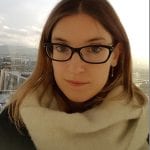
Treasa DeLoughrey
The Ocean Matters event and exhibition will raise public awareness of the hazards of marine plastics to human and non-human life, and the creators hope it will also form the foundation for collaborative community and interdisciplinary work centred on healthy oceans and the problems of oceanic plastic in the region.
The ASLE subvention will help fund exhibition printing, speaker expenses, and podcast creation.
Judges: Stephanie Posthumus (chair), McGill University, Nicole Merola, Rhode Island School of Design, CarmenFlys-Junquera, Universidad de Alcala, David J. Taylor, Stonybrook University, Hannes Bergthaller, National Chung Hsing University
[1]Chris Tyree and Dan Morrison. 2017 ‘Invisibles: The Plastic Inside Us’ Orbmedia.com (September 1st) https://orbmedia.org/stories/Invisibles_plastics
[2]Christian Schmidt, Tobias Krauth, and Stephan Wagner. 2017. ‘Export of Plastic Debris by Rivers into the Sea’ Environmental Science & Technology, pp 12246–12253.


